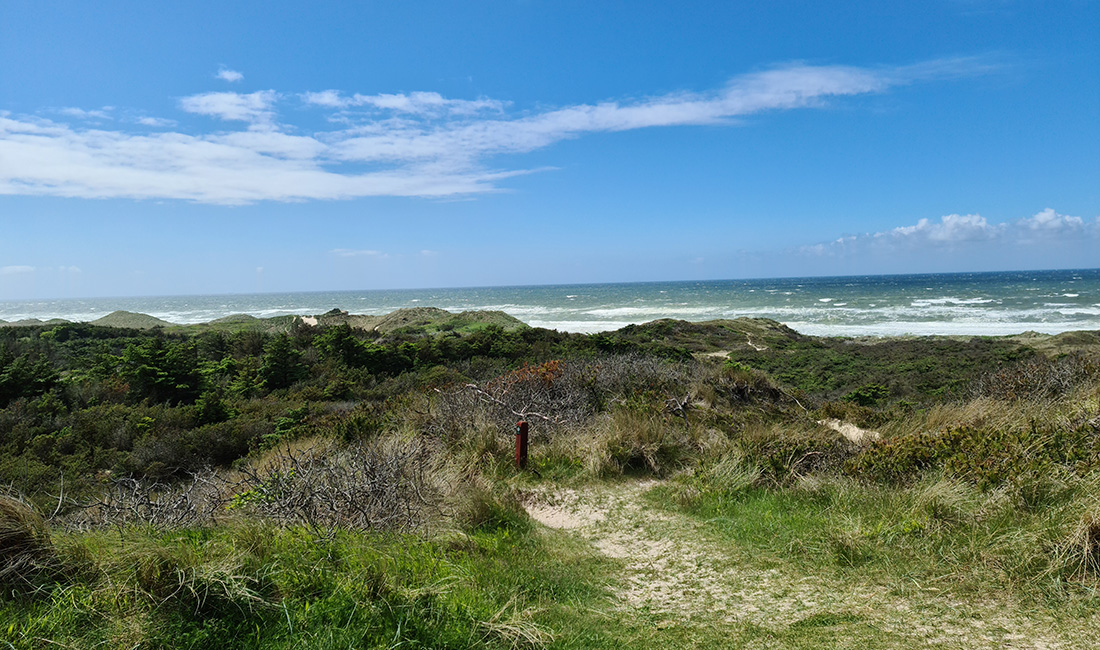Plant Diversity and Ecology

Plants constitute a most important resource for human food production, ornamentals, and other commodities. At the same time, plants may deteriorate these biodiversity goods as weeds and invasive plants. We use basic ecological, evolutionary science and systematics to develop solutions in agriculture, human influenced habitats and the management of plant communities.
Our research methods include plant identification and DNA barcoding, laboratory, greenhouse and field experiments and assessments (incl. long-term monitoring), plant functional trait measurements, modelling, DNA phylogeny and molecular diversity.
The overall focus of the Research Group in Plant Diversity and Ecology is:
- Plant diversity, systematics, and relationships among cultivated plants and their wild relatives
- Plant ecology in human influenced habitats
- Interactions among plants, animals and the environment
- Applied ecology and biodiversity in the management of plant communities
- The potential of plant genetic resources
- Global change research
Examples of topics covered by our group.
- Biodiversity Research: species, functional and molecular aspects of plant diversity
- Molecular methods in plant systematics and phylogeny
- Urban biodiversity
- Ecology of plant sexual reproduction
- Application of ecological and evolutionary theory to plant production
- Genetic resources for future breeding
- Molecular and morphological identification of plants at all levels (we offer botanical services).
PEAs & LOVE. A pre-breeding project on old and current pea cultivars. Peas for future organic agriculture.
MOLINIA. Molecular plant identification using DNA barcodes. Develop a best practice for molecular plant monitoring within the dune heath of Thy National Park.
ARISE: ecology of arctic plant regeneration by seed
Ecology of plant extinction
EcoPol: Temperature effects on pollen performance and their consequences for seed reproduction in wild plants
FunAlp: Functional trait approach to understand global change effects on alpine plants.
TRÆER I ARBORETET a botanical guide to trees in the Arboretum, Hørsholm
In Denmark we collaborate with Thy National Park, University of Aarhus, Roskilde University, municipality of Ballerup, Department of Biology, UC.
Extensive collaborations with numerous universities and research institutes in Europe e.g., University of Pavia [IT], University of Jena [DE], University of Vienna [AT] and Asia e.g., Nalanda University [IN], University Sains Malaysia [MY], a number of universities in China [CN], Komunitas Cryptocoryne [ID]).
- Lange, C.B.A., Hauser, T.P., Deichmann, V., and Ørgaard, M. 2022. Radiation and complex evolution of Barbarea vulgaris and related species (Brassicaceae). Molecular Phylogenetics and Evolution. doi: 10.1016/j.ympev.2022.107425
- Rosbakh S, Chalmandrier L, Phartyal S, Poschlod P. (2022) Inferring community assembly process from functional seed trait variation along elevation gradient. Journal of Ecology, 110, 2374-2387. doi: 10.1111/1365-2745.13955.
- Pedersen, H.Æ. & Lange, C.B.A. 2021. Biosystematics of Platanthera bifolia s.l. (Orchidaceae): inferences from analysis of Scandinavian population samples. Nordic Journal of Botany. DOI: 10.1111/njb.03199.
- Agerbirk, N., Hansen, C.C., Kiefer, C., Hauser, T.P., Ørgaard, M., Lange, B.A., Cipollini, D., Koch, M.A. .2021. Comparison of glucosinolate diversity in the crucifer tribe Cardamineae and the remaining order Brassicales highlights repetitive evolutionary loss and gain of biosynthetic steps. Phytochemistry 185, 112668
- Agerbirk, N., Hansen, C.C., Olsen, C.E., Kiefer, C., Hauser, T.P., Christensen, S., Jensen, C.R., Ørgaard, M., Pattison, D.I., Lange, C.B.A., Cipollini, D., Koch, M.A. 2021. Glucosinolate profiles and phylogeny in Barbarea compared to other tribe Cardamineae (Brassicaceae) and Reseda (Resedaceae), based on a library of ion trap HPLC-MS/MS data of reference desulfoglucosinolates. Phytochemistry 185, 112658
- Jacobsen, N., H. Ganapathy, I. Ipor, K. R. Jensen, T. Komala, K. N. A. Mangsor, F. A. Nordin, A. S. Othman, R. Rosazlina, J. Siow, S. Wongso & M. Ørgaard. 2021. A reassessment of the genus Barclaya (Nymphaeaceae) including three new species from Peninsular Malaysia. Nordic J. Botany.
- Yang, R., Weiner, J., Shia, X., Wang, Y., Zhang, R., Zan, S. 2021. Effect of reductive soil disinfestation on the chemical and microbial characteristics of rhizosphere soils associated with Salvia miltiorrhiza production in three cropping systems. Applied Soil Ecology, 103865. doi: 10.1016/j.apsoil.2020.103865
- Wu, Y., Xi, N., Weiner, J. and Zhang, D.-Y. 2021. Differences in weed suppression between two modern and two old wheat cultivars at different sowing densities. Agronomy 11, 253, doi: 10.3390/agronomy11020253.
- Rosazlina, R., Jacobsen, M. Ørgaard & A. S, Othman. 2021. Molecular evidence of the hybrid origin of Cryptocoryne ×purpurea Ridl. nothovar. purpurea (Araceae). PLOS ONE 16(1) e0239499.
- Shi, Z., Weiner, J., Cavalieri, A., Liu, H., Li, T., Cai, J. Jiang, Y. 2021. The interaction between N and P ferilization on grassland soil acid buffering capacity is regulated by precipitation. Soil Science and Plant Nutrition. doi: 10.1080/00380768.2021.1892457
Group members
| Navn | Titel | Telefon | |
|---|---|---|---|
| Conny Bruun Asmussen Lange | Lektor | +4535332803 | |
| Ditte Marie Christiansen | Postdoc | +4535325549 | |
| Jens Axel Knuhtsen | Ph.d.-stipendiat | +4535328733 | |
| Louise Winther | Ph.d.-stipendiat | +4535329120 | |
| Marian Ørgaard | Lektor | +4535332816 | |
| Marten Sørensen | Emeritus | ||
| Niels Jacobsen | Professor emeritus | +4535332805 | |
| Sergey Rosbakh | Tenure Track Adjunkt | +4535323652 |
Contact research group leader

Conny B. Asmussen Lange
Associate Professor
con@plen.ku.dk
+45 35 33 28 03
